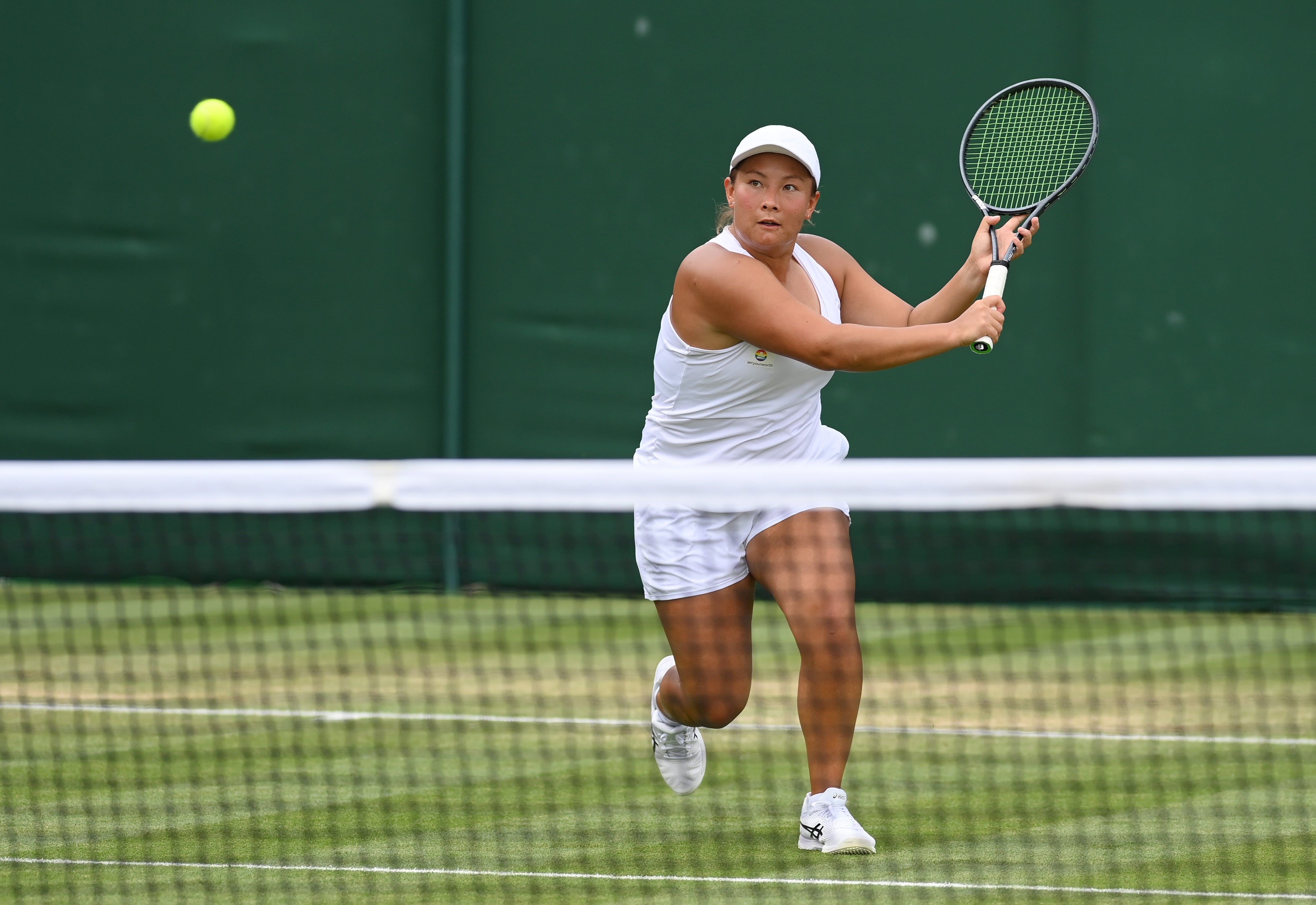A tradition once discarded but now an annual convention, the iconic dance between the men’s and women’s singles champions took place at the Wimbledon Ball on Sunday night. Jannik Sinner and Iga Swiatek, two natural introverts, smiled and laughed their way through a shake and a twirl at the Raffles London hotel in Whitehall. It was an endearing sight.
Both were well-deserved first-time champions at the All England Club in their respective finals over the weekend. Sinner downed his arch rival and defending champion Carlos Alcaraz, five weeks on from his French Open heartbreak, while Swiatek claimed the first double bagel in a Wimbledon final in 114 years.
But both, inescapably, had an elephant lurking in the corner of the ballroom.

Last year, to the shock of the sporting world, Sinner and Swiatek failed drug tests. Sinner twice tested positive for the banned anabolic steroid clostebol, first at the Indian Wells Masters tournament in March 2024 and then in an out-of-competition sample eight days later.
The case was only made public four months later, prior to the US Open, when the International Tennis Integrity Agency (ITIA) cleared Sinner of any wrongdoing. By February of this year, the World Anti-Doping Agency (WADA) entered a “case resolution agreement” with Sinner, handing him a three-month suspension. Sinner accepted the offer, keen to avoid a lengthy legal battle.
WADA accepted the cause, which read that Sinner’s physiotherapist Giocomo Naldi cut his finger on a scalpel and used a spray, which was “easily available over the counter in any Italian pharmacy”, containing clostebol to treat his finger. Naldi than gives Sinner a daily full-body massage and the Italian player later tested positive.
As for Swiatek, the Pole accepted a one-month suspension after testing positive for the prohibited substance trimetazidine (TMZ) in August. It is a medication used to treat heart conditions, but Swiatek was found to have been “at the lowest end of the range for no significant fault or negligence” by the ITIA. It only became public in November, after the 2024 season concluded.
Swiatek explained that the positive test was caused by a contaminated supply of the non-prescription medication melatonin, which she uses to help with jet lag and sleep issues, provided to her by her physio. The product was contaminated during manufacturing, an investigation concluded, resulting in an extremely low trace of TMZ.
In both cases, the reasoning has been accepted by the authoritative bodies involved. What is less digestible, for fans of the sport and various sections of the locker room, is the notion of preferential treatment for two of tennis’s top players.


Swiatek’s one-month ban covered the Asian swing of tournaments after last year’s US Open. Sinner’s three-month suspension this year took place between the Australian Open in January (which he won) and the French Open in May. He was even back a day before his home tournament, the Italian Open.
Neither missed a Grand Slam. As such, it was not an uncommon viewpoint that it all looked a little too convenient.
Three-time Grand Slam champion Stan Wawrinka stated he “didn’t believe in a clean sport anymore” after news of Sinner’s three-month ban and the timing of it. World No 4 Jessica Pegula said after Swiatek’s suspension that it “seems so hit or miss with how people get punished.” Nick Kyrgios, rather more bluntly, lamented both cases, and simply posted an asterisk on X after Sinner’s Wimbledon triumph on Sunday night.
By contrast to Sinner and Swiatek, British doubles specialist Tara Moore was provisionally suspended for 19 months after testing positive for banned substances boldenone and nandrolone in 2022. The ITIA, eventually, accepted her testimony that she had eaten contaminated meat while competing in Colombia, but only in December 2023, by which point Moore had lost her ranking points and a heap of potential prize money.

“I guess only the top players’ images matter,” Moore wrote on X last summer, after Sinner’s case became public.
“I guess only the independent tribunal’s opinion on the top players is taken as sound and right. Yet, they question them in my case. Just makes no sense.”
It would be far easier to overlook the muddy waters surrounding Sinner and Swiatek in the last year. Both showed exceptional technical and athletic skill in their triumphs on the grass of SW19 in the last fortnight. And both have their integrity intact, after episodes which will no doubt have kept them awake at night.
But there is a genuine undertone of whether they, particularly Sinner, were fortunate to be competing at Wimbledon at all. To call the length of their suspensions, and their timing, favourable would be an understatement. For the winners of the most prestigious tournament in the world to have been shrouded in such contentious cases, in just the last 12 months, is a damaging and uncomfortable look for tennis.
.png)
 German (DE)
German (DE)  English (US)
English (US)  Spanish (ES)
Spanish (ES)  French (FR)
French (FR)  Hindi (IN)
Hindi (IN)  Italian (IT)
Italian (IT)  Russian (RU)
Russian (RU) 








Comments
Get the most out of News by signing in
Sign In Register